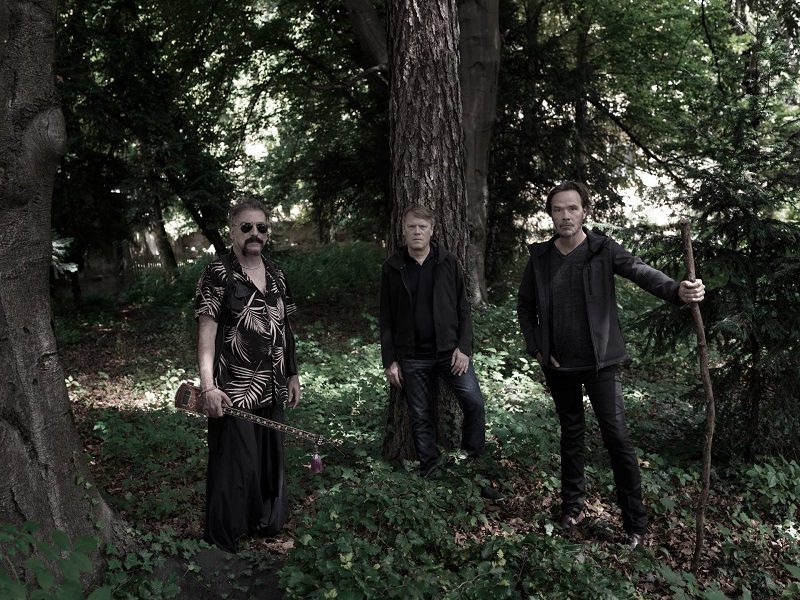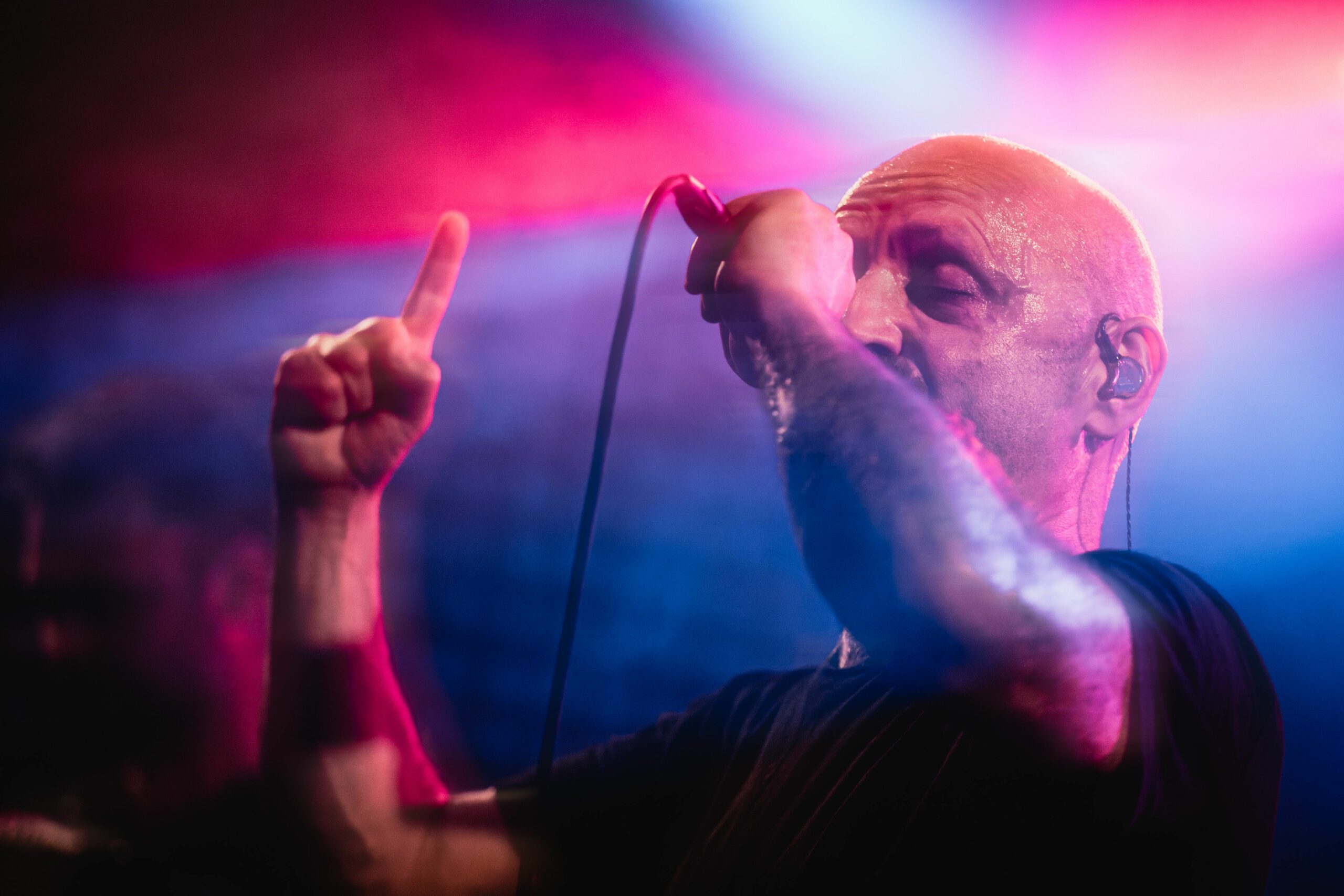Chris Eckman (Dirtmusic): “Pristup glazbi nam je veoma globalan i otvoren”

U ponedjeljak, 21. svibnja u Hrvatsku po prvi put dolazi svjetska world music atrakcija Dirtmusic predvođena Chrisom Eckmanom i Hugo Raceom iz The Bad Seedsa. Chris Eckman dobro je poznat hrvatskoj glazbenoj publici. Legendarne The Walkabouts gledali smo više puta, a s The Bambi Molesters je pod imenom The Strange snimio kultni album “Nights of Forgotten Films” 2004. godine. Uoči koncerta Dirtmusic u klubu Močvara, s Eckmanom smo razgovarali o afričkoj glazbenoj sceni, što je to world music i kako bira s kime će surađivati.
Hrvatskoj publici najpoznatiji ste po suradnji s bendom The Bambi Molesters te po radu s The Walkaboutsima. Možete li nam nešto reći o bendu Dirtmusic? Tko je pokrenuo projekt?
Ideja za Dirtmusic došla je od Huga Racea 2007. godine. Kontaktirao je mene i Chrisa Brokawa, rekao da želi započeti autorski projekt i tako je sve krenulo. Glazba je trebala biti ogoljena, veoma akustična, ali vidimo da je s vremenom evoluirala u dosta drugačiji koncept – pogotovo nakon što smo bili u Maliju 2008. godine. Tri albuma koja smo snimili u Maliju dosta su drugačija od prvog albuma – na njima smo počeli istraživati neke drugačije ideje, teksture elektroničke glazbe i druge tipove zapadnoafričke glazbe, izuzev tuareške glazbe i psihodelije. To sve dodali smo našem neprekidnom istraživanju bluesa i roots glazbe.
Koji su glazbenici s vama radili na najnovijem Dirtmusic albumu, “Bu Bir Ruya”?
Ključna osoba za taj album bio je Murat iz velikog turskog psych benda Baba Zula. Upoznao sam ga godinu dana prije no što smo snimali album, bio sam fan njegove glazbe. Kada smo Hugo i ja raspravljali o novom albumu, iskočilo je njegovo ime. Tražili smo nekakvo novo iskustvo i Murat se činio kao savršeno rješenje. Ima jako sličan proces rada našemu – temeljen na improvizaciji. A njegov pristup zvuku je veoma globalan i otvoren, ali i dalje ukorijenjen u kulturi iz koje dolazi.
Na koji način je jamanje u Istanbulu drugačije od sviranja u Americi?
Mislim da svako mjesto na kojem radiš, svako okruženje određuje što ćeš raditi. Ponekad je taj utjecaj potpuno u pozadini, veoma podsvjestan, a ponekad se, kao kad smo u Maliju radili za vrijeme problematičnog perioda, kada je bilo puno političke neizvjesnosti – to doista osjeti u glazbi, posebice za naše malijske suradnike. Kada smo otišli u Istanbul, nešto slično se dogodilo. Zbog turske političke situacije, među umjetnicima i drugim slobodoumnim ljudima koje smo upoznali bilo je puno pesimizma. Ta se atmosfera prelila i na glazbu. Ipak, osjećao se i pozitivan smisao te misije koji je obilježio cijelo iskustvo. Kada ljudi prestanu surađivati, izlaziti iz okvira i riskirati, tada će gadovi sigurno pobijediti.
Što može hrvatska publika očekivati od koncerta u Močvari? Gdje svirate nakon Zagreba?
Prva dva koncerta turneje u Sofiji i Beogradu bila su stvarno uzbudljiva. Zvuk je intenzivan i bujan. Puno je trance dijelova i trenutaka koji su malo više rockerski nego što je to na albumu. Nakon Zagreba sviramo na Druga Godba festivalu u Sloveniji i nakon toga još nekoliko drugih europskih festivala tijekom ljeta.
Znam da trenutno promovirate album “Bu Bir Ruya” i da je rano govoriti o sljedećem albumu, ali možemo li na idućim albumima očekivati suradnje s glazbenicima iz drugih zemalja?
Pokušavamo takve odluke i planove donositi veoma spontano. Da mi je netko 2007. rekao da ćemo u idućih deset godina napraviti pet albuma – tri u Maliju i jedan u Istanbulu, rekao bih mu da je lud. Sigurno je da je Dirtmusic trenutno trio – Hugo, Murat i ja. Ali tko zna što će nam biti sljedeći potez.
Pročitala sam da ste dobro upoznati s afričkom glazbenom scenom. Koje glazbenike biste preporučili hrvatskoj publici?
Postoji, naravno, gotovo beskonačni bunar predivnih afričkih glazbenika. Mislim da su dobra početna točka za one koji nisu detaljnije upoznati s afričkom scenom tuareški gitaristički bendovi kao što su Tamikrest, Bombino ili Tinariwen. Imaju duboku vezu s bluesom, čak i rock glazbom, i dobar su most za druge vrste afričke glazbe. Neki od mojih najdražih izvođača su Nahawa Doumbia, Lobi Traore, Samba Toure, Super Onze, Super Biton i mnogi drugi.
Poznajete li neke hrvatske izvođače s world music scene? Biste li surađivali s nekima?
Nisam ni siguran što je to world music scena. Mislim da se većina zanimljivih glazbenika želi ograditi od labela i žanrova. Otvoren sam za bilo kakvu vrstu suradnje tako dugo dok djeluje prirodno i fokusirano na samu glazbu. Treba postojati snažna umjetnička motivacija iza tako nečega.
Radio sam, naravno, s The Bambi Molesters u grupi The Strange. Objavit ćemo svoj drugi studijski album ove jeseni. Ta se veza prirodno razvijala s vremenom. Nikad ne razmišljam o tome da bih trebao raditi s nekim iz neke određene scene ili države. Upoznajem ljude i ako postoji kemija i povezanost, ponekad se neke stvari dogode.
Koja vam je najranija uspomena vezana uz glazbu koje se možete sjetiti?
Katolička crkvena glazba. Moja majka vodila je mene i braću na misu kada smo bili djeca. To masivno pjevanje ostavlja snažan utisak.
***
A lot of your fans in Croatia got to know you through The Walkabouts and your collaboration with The Bambi Molesters. Can you tell us something more about Dirtmusic? Whose idea was to start a band?
The idea for Dirtmusic came from Hugo Race in 2007. He contacted myself and another songwriter named Chris Brokaw and said he wanted to do a more singer-songwriter kind of project and so that’s where we really started. It was supposed to be very stripped down music – very acoustic, very handmade but over time we can see that it evolved into quite a different concept – especially after we went to Mali in 2008. Those three records we made in Mali are a quite different than the first album – they started to explore very different ideas and we started to incorporate textures like electronics and of course other types of West African music besides Tuareg music and psychedelia. We added all this to our ongoing investigations of the blues and roots music.
Who is the team of musicians that worked with you on the album ”Bu Bir Ruya”?
The real key to this album was the addition of Murat from the great Turkish psych band Baba Zula. I had met him about a year before we did the album and I was a fan of his music and when Hugo and I were discussing a new record, his name came up. We were looking for some sort of a new experience and Murat seemed to be a perfect addition. He has a very similar working method to us – basing it on improvisation. And his approach to sound is very global and open, while still being rooted in the culture he comes from.
In what way is jamming in Istanbul different than playing and rehearsing in America?
I think every place that you work – every environment informs what you are doing. Sometimes the influence is very much in the background, very subconscious and I think other times like when we were in Mali working during a very troubled time, when there was a lot of political uncertainty – that really crept into the music, especially with our Malian collaborators. When we went to Istanbul for this album a similar thing happened. Because of the Turkish political situation there was a lot of pessimism amongst artists and other freethinking people that we met and that sort of atmosphere of course seeped into the music. But there was also a positive sense of mission – that ran through the experience. When people stop reaching out and stop taking chances then the bastards win for sure.
What can Croatian audience expect from the concert in Močvara Zagreb? Where are you playing after your show in Zagreb?
The two concerts so far, in Sofia and Belgrade, were really exciting. The sound is intense and dense. There are a lot of trance passages and moments that are a little bit more rocking work than what is on the album. After Zagreb we play the Druga Godba festival in Slovenia and then more festivals throughout Europe over the summer.
I know that currently you are promoting the album ”Bu Bir Ruya” and it’s early to talk about the next one, but can we expect collaboration with artists from other countries on your next LP-s?
We try to keep those sorts of decisions and plans very spontaneous. If someone had told me in 2007 that we would make five albums in the next 10 years – three of them in Mali and one of them in Istanbul, I would have said they were crazy. One thing for sure, we now consider Dirtmusic and three piece – Hugo, Murat and myself. But it’s anyone’s guess what the next move will be beyond that.
I’ve read that you’re very familiar with African music scene. What musicians would you recommend to Croatian audience?
There is of course an almost bottomless well of wonderful African musicians. I think of a good entry point into African for those that are not really deeply initiated, is to try out the Tuareg guitar bands like Tamikest, Bombino or Tinariwen. It has deep relationships to the blues and even rock music and it’s a good bridge into other kinds of African music. Just investigating Malian music alone could take a whole lifetime of listening and exploring. Some of my favorites are Nahawa Doumbia, Lobi Traore, Samba Toure, Super Onze, Super Biton and many more.
Can you see yourself collaborating with Croatian artists from world music scene? Do you know any?
I am not sure what the world scene even is. For the most part I think interesting musicians try to keep themselves free from labels and genre boxes. I’m open to any sort of collaboration as long as it feels natural and focused on the music itself. There has to be a strong artistic motivation to do it.
I have of course worked with the Bambi Molesters – in the group The Strange. We will release our second album in the autumn. That relationship developed over time – in a natural way. I don’t ever think, that I should work with someone from a particular scene or country. I meet people and if there is a chemistry and a connection, sometimes things happen.
What’s the earliest childhood memory about music that you can remember?
Catholic church music. My mother dragged me and my siblings to mass when we were kids. All that ponderous singing leaves a deep impression.
Ovaj je sadržaj sufinanciran sredstvima Fonda za pluralizam medija Agencije za elektroničke medije.




